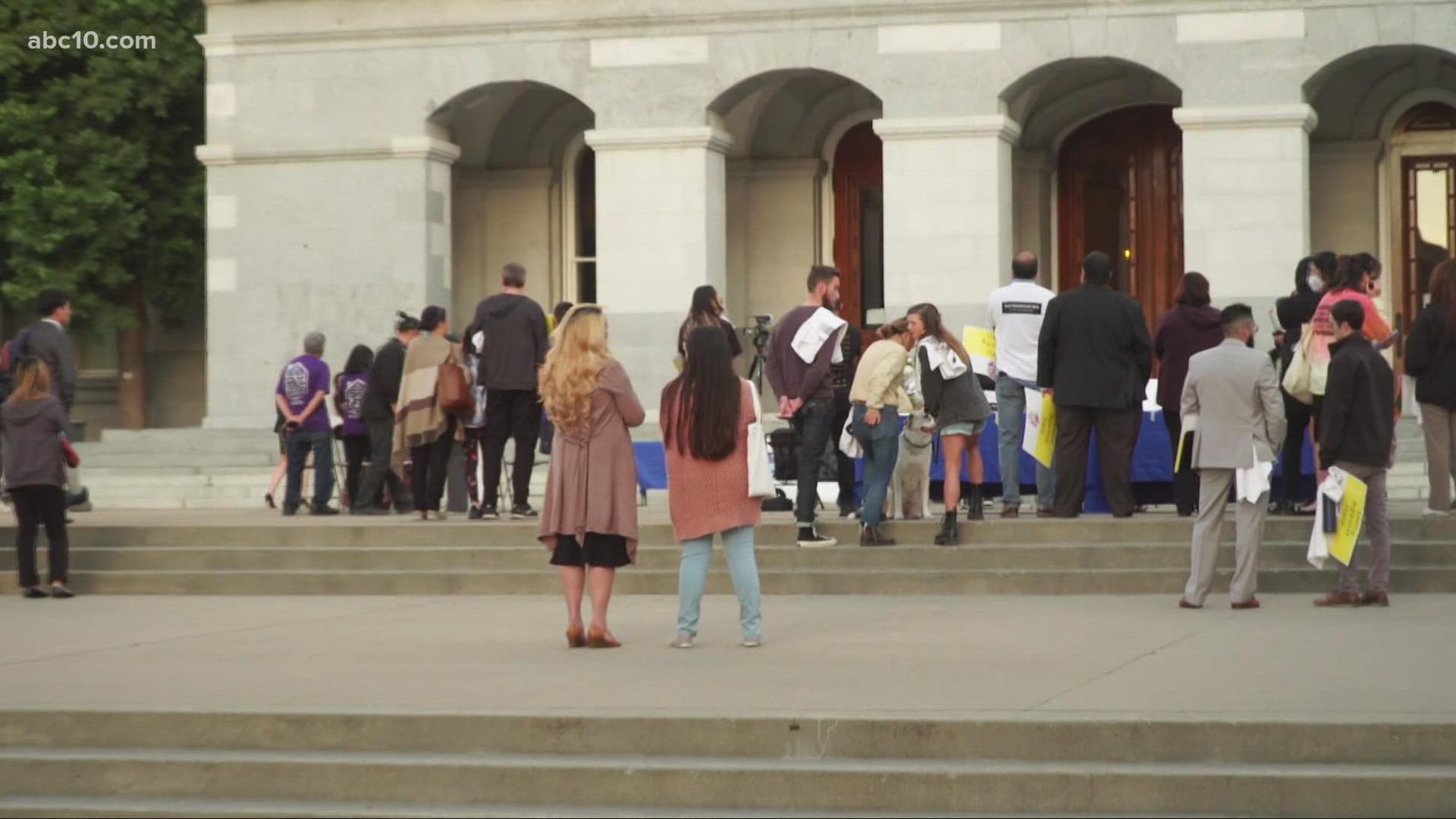SACRAMENTO, Calif — More than two years after the first known case of COVID-19 in the United States, more Americans are partially blaming Asian Americans for COVID-19 in 2022 than in 2021, according to the Social Tracking of Asian Americans in the U.S. (STAATUS) Index.
The annual STAATUS Index survey tracks attitudes and perceptions of Asian Americans in the U.S. by a representative sample of adults from across the country. The first study was conducted last year. This year, 5,113 U.S. residents were surveyed between Feb. 10 to February 28.
The survey indicated that 21% of Americans are more likely to say Asian Americans are "at least partly responsible for COVID-19" in 2022, compared to just 11% last year. The STAATUS Index stated these results, along with the continued alarming increase of attacks against Asian Americans, are indicative of deeper system issues such as xenophobia, fear, and "othering" of Asian Americans that have long persisted in the country before the pandemic.
"No longer can we blame the current wave of anti-Asian American hate and violence on a single politician or on a pandemic," read in the report.
Despite the continued increase in attacks, the STAATUS Index said many Americans are unaware of the spike in anti-Asian American hate over the past year. Still, exactly half of the Americans surveyed do believe race relations, in general, have declined in the last five years.
Among all other racial groups, Asian Americans are the least likely to feel like they belong and are accepted in the U.S., even if they were born in the country. To put that into numbers, 29% of Asian Americans and 33% of Black Americans completely agree that they feel they belong and are accepted. 42% of Latino Americans said they feel like they belong.
Damaging stereotypes are attributed to the inability of Asian Americans to feel a sense of belonging. According to the study, Americans still see Asian Americans in "model minority" terms — as "intelligent/smart" and "hard-working." These stereotypes, while seemingly harmless on the surface, ignore the diversity of Asian American cultures and erase racism against Asian Americans, according to Learning for Justice. Those stereotypes also operate alongside the myth of Asian Americans as "perpetual foreigners."
► Get more stories about race and culture: Sign up for our newsletter at www.abc10.com/email and find more online in our Race & Culture section.
72% of Americans still believe racism against Asian Americans should be addressed. The STAATUS Index pointed to some potential solutions to address misperceptions that contribute to racism and violence against Asian Americans, based on its data.
The most recommended solution was increased education about anti-Asian American racism. The survey recommended supporting organizations that are dedicated to preserving and teaching the long and diverse histories of Asian Americans and people of color. It also stated there should be more investment in schools to teach Asian American history.
Other solutions included changing the narratives surrounding Asian Americans in news media, social media, and entertainment to overcome "model minority" stereotypes, as well as having more data and research to track sentiments towards Asian Americans.
According to the survey, Asian Americans would also like to see stronger laws and greater protection for their communities.
(The STAATUS Index has stated the focus of this study is on the Asian American population and further research will be needed to analyze perceptions and attitudes towards Native Hawaiians and Pacific Islanders).



















